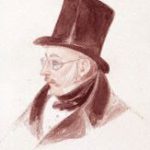GOBIND SINGH, GURU (1666-1708), the tenth and the last Guru or Prophet teacher of the Sikh faith, was born Gobind Rai on Poh sudi 7, 1723 Bk/22 December 1666 at Patna, in Bihar. His father, Guru Tegh Bahadur, the Ninth Guru, was then travelling across Bengal and Assam. Returning to Patna in 1670, he directed his family to return to the Punjab. On the site of the house at Patna in which Gobind Rai was born and where he spent his early childhood now stands a sacred shrine, Takht Sri Harimandar Sahib, one of the five most honoured scats of religious authority (takht, lit. throne) for the Sikhs.
HARIMANDAR (lit. the House of God; hari = Visnu, or God; mandar = temple, house), Golden Temple to the English speaking world, is the Sikhs` most famous sacred shrine. Also called Sri Darbar Sahib (the Exalted Holy Court), it lies in the heart of the city of Amritsar in the Punjab. The city in fact grew around what initially stood as the temple portal. The present structure could well be described as a golden beauty amid a glittering pool of water.
MACNAGHTEN, SIR WILLIAM HAY (1793-1841), born in August 1793, was the son of Sir Francis Macnaghten. He was educated at Charter house and joined the service of the East India Company in 1809. He studied Hindustani, Persian and other Asiatic languages. His diplomatic career began towards the close of 1830, when he accompanied Lord William Bentinck as secretary on his tour through the upper and western provinces of India. He was also present at the Governor General\'s meeting with Maharaja Ranjit Singh at Ropar in October 1831.
NIRMALA, derived from Sanskrit nirmala meaning spotless, unsullied, pure, bright, etc.. is the name of a sect of Sikhs primarily engaged in religious study and preaching. The members of the sect are called Nirmala Sikhs or simply Nirmalas. The sect arose during the time of Guru Gobind Singh (1666-1708), though some, on the authority of a line in the first iwof Bhai Gurdas (d. 1636), claim, like the Udasis, Guru Nanak (1469-1539) himself to be the founder. Guru Gobind Singh wanted his followers not only to train in soldierly arts but also to cultivate letters.
POLLOCK. SIR GEORGE (1786-1872), baronet, field marshal, son of David Pollock, was born on 4 June 1786. In 1803, he entered the East India Company artillery. He took part in the campaign against Jasvant Rao Holkar, 1804-05, and served in Nepal, 1814, and in the first Burmese war, 1824-26. In January 1842, he was appointed commander to the "Army of Retribution" which marched through the Punjab to reconquer Afghanistan after the Kabul massacre of November 1841. He marched with his force towards Peshawar under unfavourable circumstances.



